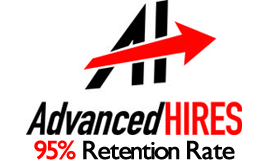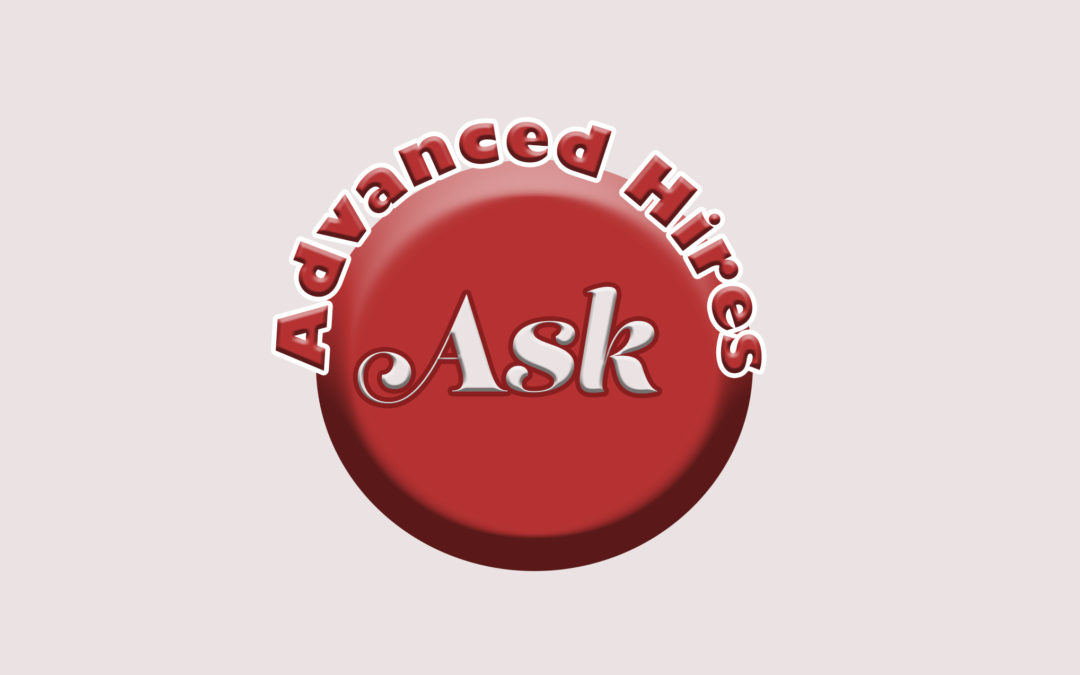Q: What things should I be taking off my resume this year? Do you have any tips?
Dusting off your resume and updating it (especially after 2020) is crucial. As the times change, so do the things employers are looking for on resumes and cover letters. According to the research Advanced Hires has done, as well as the trends we are seeing in the industry, here are some of the things you should remove from your resume in order to impress a future employer:
- Full Address
It’s no longer necessary to put your full address on your resume these days. The city and state you reside in should be enough, and if you get further along in the process to the point where an employer would need your residential information, that can be provided at a later date. For privacy and space reasons, keeping your exact address off your resume is the best way to go.
- Chunks of Text
Paragraphs of explanatory text, either as an “About” section or in a job description, are not helping you out at all. Chunks of text are meant for the cover letter, not for your resume. Your resume should be streamlined and efficient, a quick way of conveying the important information about your career. Many people only spend a few minutes, if not seconds, glancing over the resume to see if the candidate is a fit. Blocks of text are only hindering you. Eliminate them, and make your resume concise and effective.
- Your Age
Unfortunately, age discrimination in the workplace is still very alive and well. Even though it shouldn’t matter what year you graduated or what day you got a certification on, it can possibly hurt your job search. It’s best to remove dates from your resume (except for the ones at your jobs) so that people focus more on the content and less on your possible age.
- Your Salary
Definitely never, ever include your current salary on your resume. It’s fine to highlight any raises or promotions you’ve gotten, but you’re under no obligation to actually lay out the exact number. The reason for this is that companies might try to undercut you and offer you less than they otherwise might have. Don’t forget that negotiation is always good when accepting a new job. Don’t show your hand before you know what might be dealt!
- Strange Colors, Styles, or Formatting
Have a consistent, professional, clean resume. You don’t need yellow backgrounds and green words. You don’t need to use “funky” fonts or “unique” formatting. Keep it simple. Use Times New Roman or Helvetica at 12 point with normal margins and bolded titles or subtitles. Hiring managers and recruiters do not want to have to wade through your confusing formatting to find the information they need, and having an “original” resume is likely to get you passed over.
- Your Photo
Unless a company has specifically asked for a picture of yourself (which many won’t because it’s not in the norm), do not include one on your resume. Unless you are an actor or otherwise in the entertainment industry, it will look widely out of touch with whatever you’re applying for and is completely unnecessary. Feel free to take a nice headshot for your LinkedIn profile, but keep it online. It doesn’t belong on your resume.
- Lies
There can sometimes be the temptation to lie on a resume for various reasons, but it’s never, ever a good idea. Getting caught in a lie will make you seem unreliable, untrustworthy, and greatly flawed. It can result in immediately dismissal or termination, even if it’s found out way down the line. Resumes are there to showcase you and your talents, but be careful to not exaggerate or hyperbolize to the point where it’s a lie.





